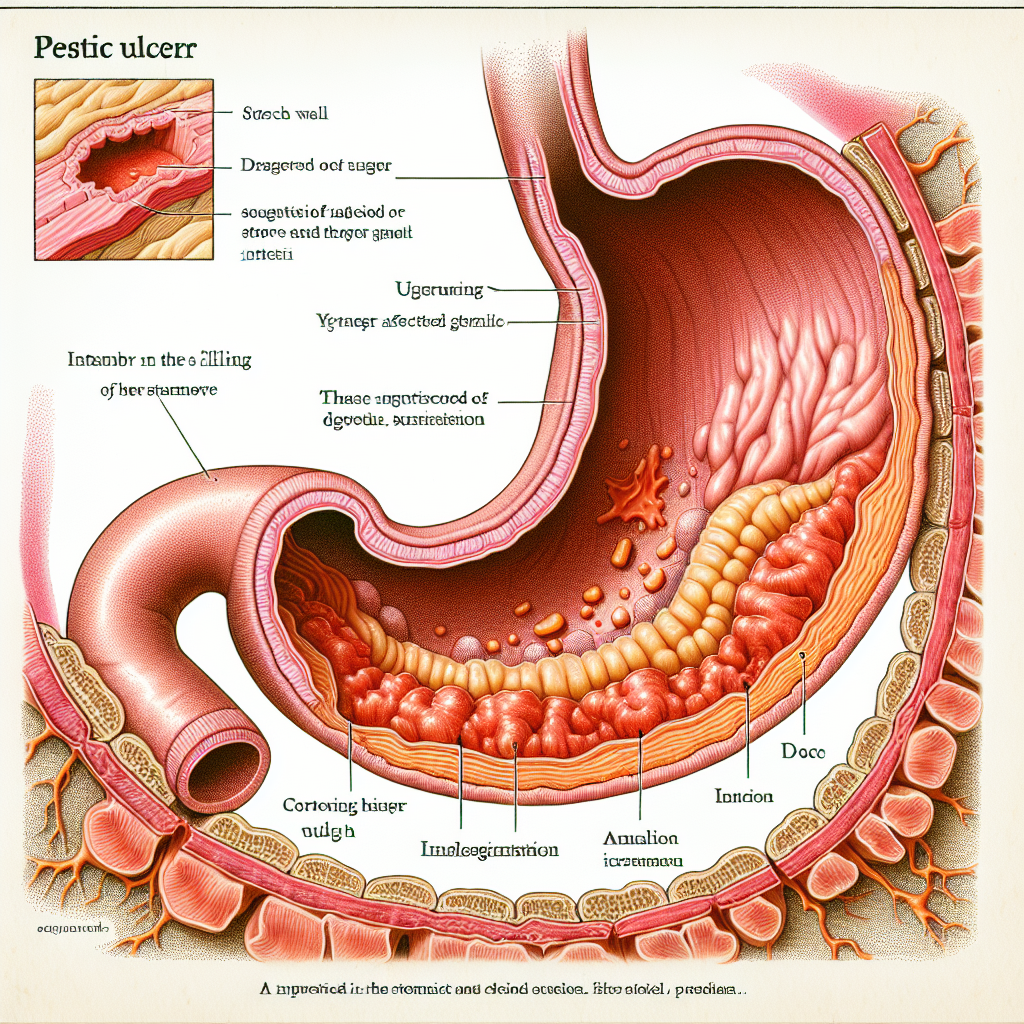Understanding Peptic Ulcer Injury

Peptic ulcer injury is a common health condition that affects millions of people worldwide. It is a type of gastrointestinal disorder that results in painful sores or ulcers in the lining of the stomach or the first part of the small intestine, known as the duodenum. This article aims to provide a comprehensive understanding of peptic ulcer injury, its causes, symptoms, diagnosis, and treatment options.
Causes of Peptic Ulcer Injury
Peptic ulcers are primarily caused by an imbalance between the stomach’s digestive fluids, hydrochloric acid, and pepsin. This imbalance can be triggered by several factors:
- H. pylori bacteria: A common cause of peptic ulcers is an infection with the bacterium Helicobacter pylori (H. pylori).
- Medications: Regular use of pain relievers, such as aspirin, ibuprofen, and other nonsteroidal anti-inflammatory drugs (NSAIDs), can irritate or inflame the stomach and small intestine lining.
- Other factors: Smoking, alcohol consumption, radiation therapy, and severe physical stress due to major surgery, injury, or burns can also contribute to peptic ulcers.
Symptoms of Peptic Ulcer Injury
The most common symptom of a peptic ulcer is abdominal pain, which can range from mild to severe. Other symptoms may include:
- Bloating or feeling full
- Heartburn or acid reflux
- Nausea or vomiting
- Unexplained weight loss
- Dark or black stool
Diagnosis and Treatment
Peptic ulcers are typically diagnosed through a combination of medical history, physical examination, and tests such as endoscopy or an H. pylori test. Once diagnosed, treatment options can include:
- Medication: Antibiotics to kill H. pylori bacteria, proton pump inhibitors, or H2-receptor blockers to reduce stomach acid, and antacids to neutralize stomach acid.
- Lifestyle changes: Avoiding NSAIDs, quitting smoking, limiting alcohol, and managing stress can help manage symptoms and prevent further ulcer development.
- Surgery: In severe cases, surgery may be required to treat complications such as bleeding, perforation, or obstruction.
Conclusion
Peptic ulcer injury is a significant health concern that requires prompt attention and treatment. Understanding its causes, symptoms, and treatment options is crucial for effective management and recovery. It’s important to seek medical attention if you experience symptoms of a peptic ulcer, as early diagnosis and treatment can help prevent complications and improve quality of life.
Meta Keywords: Peptic Ulcer Injury, Causes of Peptic Ulcer, Symptoms of Peptic Ulcer, Treatment of Peptic Ulcer, H. pylori, NSAIDs, Stomach Acid, Ulcer Surgery, Gastrointestinal Disorder
Note: The article should be accompanied by a cartoonish image reflecting the subject matter. The image should be set as the featured image for the article.







